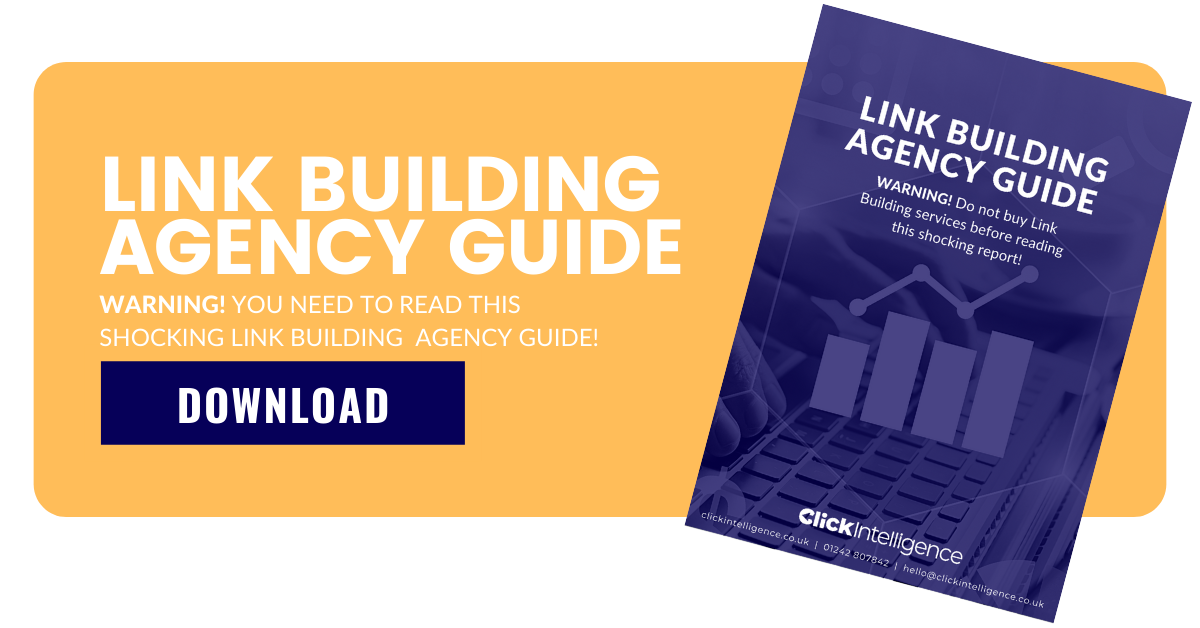Would you like to see better results from your keyword researchKeyword research helps websites unearth the best keywords to drive traffic and visibility. This research is supported by a number of powerful web-based tools, the best of which we’ve listed here. efforts? If yes, you have come to the right place.
Despite all the many Google algorithm updates that have taken place over the last ten years, one element of SEO has remained consistently important: keywordKeywords are the words and phrases that potential customers might search for to find your business. research.
Providing valuable insight into what your target audience is typing into Google and other popular search engines, keyword research can not only help you with content marketing but your wider digital marketing strategy as well.
That being said, there is nothing more frustrating than spending hours on keyword research only for your organic trafficOrganic search traffic (sometimes called natural or unpaid search) is the traffic that's driven to a website because of unpaid placement on a search engine results page. levels to stay the same.
If this is the case for you, or even if you simply want to up your keyword research game, then the below guide is exactly what you need.
Keep reading to discover:
- What is keyword research?
- Why is keyword research important?
- How to find out what people are searching for online
- How to carry out effective keyword research
- How to choose the right keywords for your campaign
What is keyword research?
Keyword research is the process of seeking out and analysing search terms that users are entering into search engines for the purpose of search engine optimisation. Often referred to as the foundation of SEO, you need to truly understand the language your target audience is using when carrying out searches for your products and services online if you want them to be able to find your content.
There are several components to keyword research, including keyword search volume, keyword search intent, and keyword value.
Why is keyword research important?
As mentioned above, keyword research is how you can find out what users are typing into search engines, so you need to do it in order to avoid creating content about topics that your target audience simply isn’t interested in.
Keyword research can help you to find out:
- How hard it will be to rank for a keyword
- How much traffic you are likely to get from a keyword
- What type of content you need to create for a keyword
- If a keyword likely to result in searchers becoming customers
How to find out what people are searching for online
There are several tools that you can utilise to find out what your target audience are searching for online, including:
Google Keyword PlannerThe Google Keyword Planner Tool helps you find new keywords and synonyms based on the ones you already rank for.
This useful (and free) tool is a must for anyone wanting to carry out keyword research. Enabling you to gain powerful insights into your audience’s online behaviour, you can see what people are searching for online and how often a particular keyword or phrase has been searched within a set period of time.
Google TrendsGoogle Trend tool is a free service from Google that lets you see how popular a particular search term or topic is over time.
If you want to find out how popular a specific topic or search term is over a specific amount of time, especially across different locations and in different languages, Google Trends can filter their data accordingly.
How to Carry Out Effective Keyword Research
If you want to execute a successful keyword strategy, there are several steps that you need to follow when it comes to carrying out keyword research.
Step 1: Brainstorm topic ideas
Try to come up with 10-15 topics that you want to rank for. These should be fairly broad ideas and may include topics that you currently blog about or that you know your target audience are interested in.
If you are struggling with this initial step, try to put yourself in the shoes of your ideal customer and think about what they would be searching for online in relation to your product or service.
It can also be a good idea to note down the keyword search volume of each phrase that you come up with, as this allows you to see how relevant these are to your target audience.
Step 2: Flesh out each topic with keywords
Now that you have a list of topics, your next step is to allocate keyword phrases to each one. For example, if one of your topic ideas was “blogging”, keyword phrases could include: how to set up a blog, blogging tips, and top blogging ideas.
This step is important as it will help you to come up with your final keyword list later down the line.
If you are struggling with this step, you can use a traffic analytics tool to see what keyword phrases your website is already getting found for, or you could check out your competitors’ sites to see what keywords they are using.
Step 3: Consider search intent
Although keyword research is a crucial part of SEO, Google has now shifted their focus more to user experience, and this is where search intent comes into play. The ultimate goal of Google has always been to provide searchers with the most relevant result to their query, and understanding search intent can help them to achieve this.
In terms of keyword research, this means that you need to think about the user intent behind each phrase. For example, if you are researching “how to start a blog” for an article you are writing for your website, this could be interpreted in two ways. Firstly, it could be an article about how to write a blog post, or it could be content about how to launch a website for the purpose of blogging.
Both are very different, but each could start with a searcher typing in “how to start a blog” into Google. This is why identifying search intent is so important so you can choose the right keywords accordingly.
Step 4: Look for related searchThe Related Search feature on Google is a clever way to find more relevant information about a topic. terms
If you are still struggling to come up with enough keyword phrases, you might want to try looking at related search terms on Google. These are the terms that come up when you type a particular keyword into Google.
Although not all of these will be relevant to your website, this can help to generate a few new ideas for keyword phrases.
How to Choose the Right Keywords for Your Campaign
Now that you have a good idea of what keywords you want to rank for, the next step is to narrow down your list to the ones that align with your SEO strategy and are relevant to your industry. This is how you are going to do it:
Look for relevance
As you are probably already aware, your content and therefore your keywords need to be relevant if you want them to rank well. To establish relevance, think about search intent and why your target audience would be looking for your product or service.
Focus on authority
Avoid keywords that has SERPs that are full of sources that you cannot hope to compete with, instead focus on creating high-quality content that earns high domain authority backlinks.
Determine volume
Keyword search volume is a vital part of keyword research as there is no point in selecting a keyword that no one is searching for. When deciding on your target keyword search volume, you need to consider two main factors: seasonal vs. evergreen keywords and keyword clustering, otherwise known as keyword grouping.
Choose both head terms and long-tail keywords
For optimal results, you need to select a combination of head terms (short, generic phrases that are 1-3 words in length) and long-tail keywords (longer, more specific phrases that contain three or more words).
Check out your competition
Once you have your list of keywords, it can be a good idea to look at your competitors’ ones to see if you have missed any relevant phrases. Although not all the keywords that they use will be suitable for your business, you might find the odd one or two that can help boost your campaign.

5 Top Keyword Research Mistakes
As well as knowing what you should be doing when it comes to effective keyword research, it is equally important to understand what you should avoid doing unless you want to undo all your hard work, that is.
Below are the most common mistakes that marketers make when conducting keyword research:
- Only carrying out keyword research once. A big no-no. Keyword research, like all aspects of SEO, is an ongoing process that requires regular attention if you want to see long-lasting results.
- Sticking to the same keyword list. Although you should focus on using keywords that have proven their worth, that doesn’t mean that you can neglect finding new ones as industry trends change all the time.
- Targeting keywords that are too competitive. If you use very competitive keywords, you will not rank on the first page of Google. You may even struggle to get on one of the first five pages.
- Translating keywords into another language. If you run a site that is available in multiple languages, don’t think that this means you can simply translate your chosen keywords into those languages. Instead, conduct new keyword research for each country.
- Only using one keyword research tool. If you have mastered the art of using Google Keyword Planner, you may be tempted to only use this one keyword research tool. However, each keyword research tool has its own benefits and limitations, so you should aim to use multiple resources if you want to achieve optimal results.
Good luck with your keyword research! If you’d like to pick our brains on this, you can book in a free consultation call with one of our team members.











